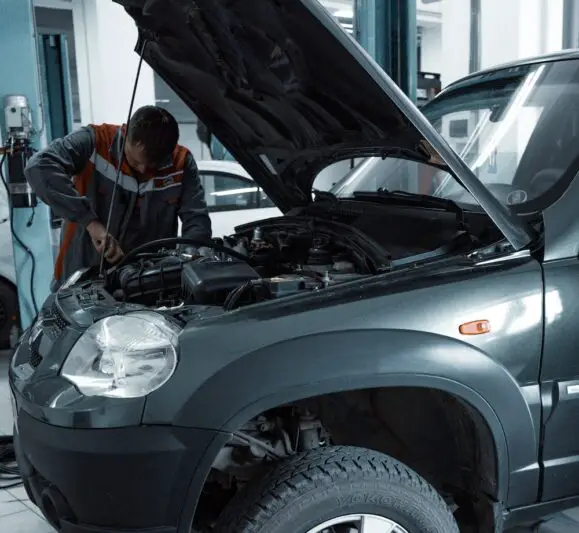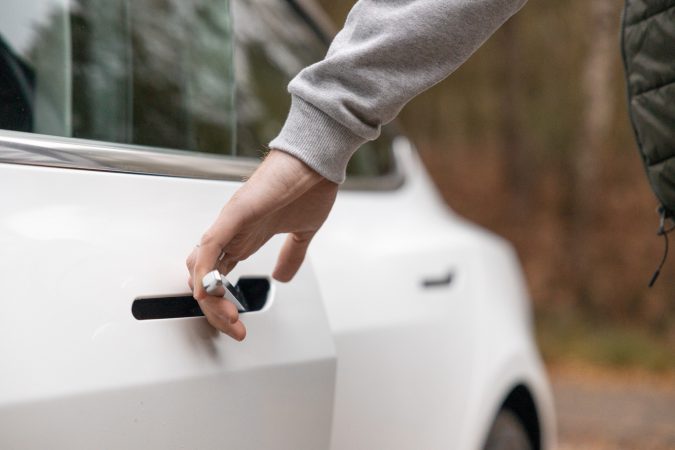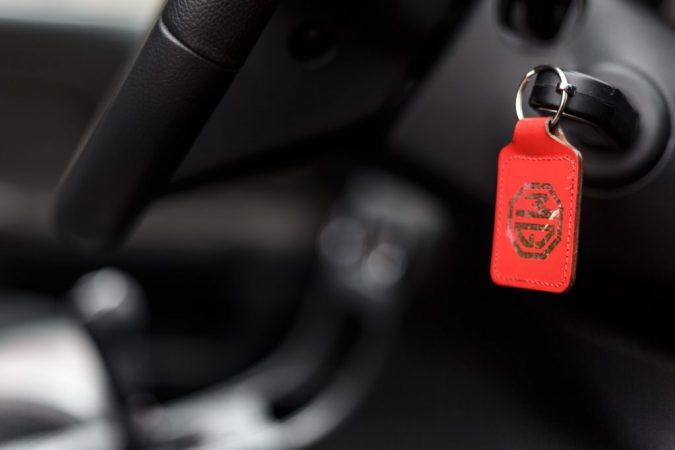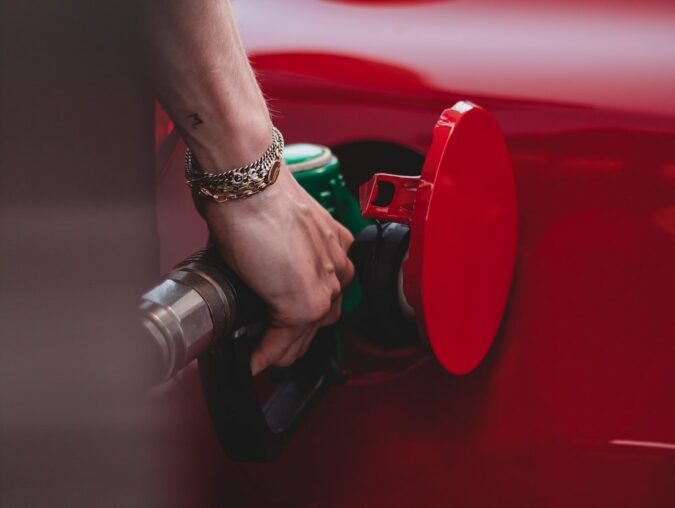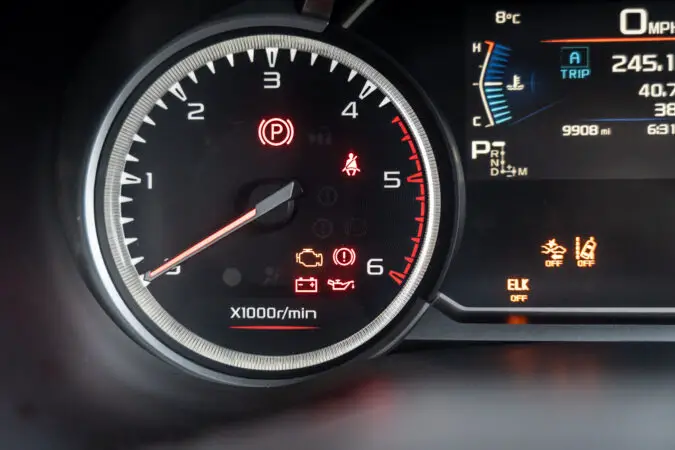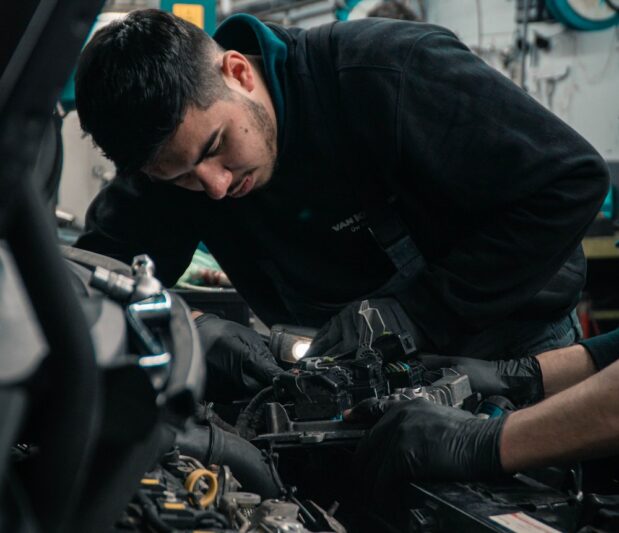It can be extremely frustrating when your car starts then dies. Cars are there to make your commute and life easier but when they stop working it can be really frustrating. When the occasional mechanical issues do arise, the owner is often left confused about what to do.
Of the various problems that can happen to your car, “car starts then dies”, is one of the scariest and can cause panic to several car owners. This problem is not only frustrating but can leave an individual scratching their heads trying to figure out the problem.
That is why, we are here to educate you about the problem “car starts then dies” so that when and if this happens to you, you are prepared to do the correct thing.
- Reasons Why Your Car Starts Then Dies
- Car Starts Then Dies When Cold
- Car Starts Then Dies And Won’t Start Again
- Conclusion
- Frequently Asked Questions
Reasons Why Your Car Starts Then Dies
If your car starts then dies, the only way to fix it is to get more informed about this problem. Knowledge about what might be causing your car to have this problem will help you get over this problem. You can take it on as a DIY project or show it to your local mechanic. It is best to let a mechanic handle this problem if you’re unfamiliar with it. Here is a list of all the common reasons you need to know.
Car Starts Then Dies, Reasons #1: Bad Air Control Valve
The car engine is a complicated system and modern cars with a myriad of sensors are even more difficult to work on. Hence, when your car is idle, it is the responsibility of the idle air control valve or IAC to regulate the air-fuel ratio. This valve is connected to the throttle body and is a part of the air intake system which controls the amount of air that enters the combustion chamber.
The IAC is also responsible for managing the engine load changes when your car is stationary. In layman’s words, it changes the air-fuel ratio for optimum performance when you turn on the AC, headlights, radio, etc.
If the idle air control valve fails, your car’s idle might not be smooth and might cause your car to have some more problems. Problems like car starts then dies.
What Can You Do?
Something you can do is clean the idle air control valve thoroughly and check if it stops the car from dying. If that does not help chances are that there is some problem with the electrical circuit of the car.
Electrical problems might prevent the valve from functioning properly. In such cases, it is best to let a mechanic handle things as the wirings might need replacing or repairing.
Car Starts Then Dies, Reasons #2: Severe Vacuum Leak
When there is a hole or a crack in a vehicle’s air intake system behind the mass airflow sensor or MAF sensor, it is called a vacuum leak. This allows unmetered air, also known as the air that flows not via the mass airflow sensor, into the engine. This messes with the car’s air-fuel ratio which causes the car to run lean and erratic.
Your car engine running lean means that the ignition chamber of your vehicle is igniting the fuel in it with too much air or too little fuel. This causes the car to run badly or even die when it starts.
Your car can run with a minor vacuum leak. But when it is severe, the air-fuel ratio will become way too lean causing the car engine to stall.
What Can We Do?
The first thing you need to do is pop the hood of the car and inspect the engine bay for a ripped or disconnected vacuum line. Finding one is not always very easy, that is why you would need the help of a mechanic.
Mechanics use something called the smoke test. In this test, the mechanic pumps smoke into the intake system. This can help then to pinpoint the exact source of the leak and fix it as soon as possible.
Car Starts Then Dies, Reasons #3: Anti-Theft Alarm System Issue
Modern cars are extremely technical and with new technology, a new anti-theft system for your car’s safety has been introduced into the market. An anti-theft system, when activated, will not send any power to the fuel pump. When you start the car with the correct key, the anti-theft system turns off. This happens after you put the key into the ignition.
A malfunctioning anti-theft system can cause your car to malfunction too. It may also be the root cause of the problem “car starts then dies”. The alarm might get triggered or show it’s active on your dashboard. As a result, the car would not start.
What Can We Do?
When your anti-theft system is malfunctioning, there should be a key symbol on the dash that would not go away at all. The key symbol should go off after a few seconds but if it does not, you need to lock and unlock your car again. This will reset the system and your car might work.
If it still does not work, there could be a problem with your key or the alarm. The best thing to do in this situation is to show your car to a professional.
Car Starts Then Dies, Reasons #4: Dirty Or Faulty MAF Sensor
A mass airflow sensor or the MAF is responsible for measuring and altering the amount of air that enters your car’s engine for optimal working. This sensor is extremely sensitive and therefore can easily malfunction.
Any type of debris or dirt buildup can go past the engine and into the air filter. This further can easily pollute the sensor. A malfunctioning MAF sensor may often read incorrect air measurements, which would further mess up the air-fuel ratio. The wrong air-fuel ratio will make your car not work properly.
What Can We Do?
You can clean the sensor with a MAF sensor cleaning kit. Most of the time the MAF sensor can be fixed just by cleaning it. If the sensor still won’t work, you have to replace it.
Note: while cleaning the mass airflow sensor, do not touch the sensor directly. You need to clean it with one of the recommended methods. It is important for a professional to handle this problem.
Car Starts Then Dies, Reasons #5: Ignition Issues
The ignition on a car is responsible for generating a spark in the combustion chamber. This spark ignites the mixture of air and fuel which helps turn on the car. If there is any problem that occurs in this whole ignition process.
There are several things that can go wrong in your ignition system. The problems the ignition system faces are:
What Can We Do?
The first thing you need to do is to check that everything is connected properly to the battery. Secondly what you need to do is check for corrosion on the battery terminals. If there is any kind of corrosion on the terminals, you need to clean them with a terminal cleaner before you use your car.
The next item on the list you need to check is the spark plug. If the tip or the electrode has gone through wear and tear, you need to replace the spark plug. You can also look for fuel and oil in the spark plug. While you’re checking the spark plug you also need to check the ignition coil. A faulty ignition coil won’t be able to provide a spark to the plug.
Car Starts Then Dies, Reasons #6: Lack Of Fuel
Lack of fuel does not mean that there is no fuel in the fuel tank but there is some problem in the procedure of getting the fuel into the combustion chamber. One of the most common reasons your car may start then die is the shortage of fuel in the combustion chamber.
Alongside that, a shortage of fuel in the fuel rail might also be the root cause of this problem. Because of that, there is no fuel pressure to keep the engine alive. There can be several faulty parts like the fuel pump, fuel pump relay, injector, fuel pump regulator, ETC.
What Can We Do?
It is extremely simple to discover the lack of fuel problem. All you need to do is connect a fuel pressure gauge on the fuel rail to check if you have any fuel pressure. If not then what you need to do is show your car to a mechanic.
You should not experiment with other methods regarding fuel as it can be extremely dangerous. It’s also a fire hazard to leave it as-is. Hence it is always better to call a mechanic while dealing with difficult situations with your vehicle.
Car Starts Then Dies, Reasons #7: Fuel Pump Leak
The responsibility of a fuel pump, just like the name suggests, is to move the fuel from the tank and into the combustion chamber. If there is a crack or a leak in the fuel pump, there can be several problems that arise. This happens because there is a hindrance to the combustion process.
An engine always needs to have the right amount of air-fuel ratio. A fuel leak or a bad pump would not allow the perfect amount of fuel to travel to the combustion chamber. If there is any problem with it, the engine starts to run rough and bad.
What Can We Do?
Most modern cars in today’s day and age have several sensors to check the car’s internals. There are sensors for the fuel pump as well. They inform us if something is wrong with the car before it can become dangerous. It will do say by deploying the check engine light.
If your car has the check engine light turned on, you need to get your car examined by a mechanic. Chances are you’ll have to get the pump replaced.
Car Starts Then Dies When Cold
There can be several instances of why your car starts then dies, especially when it is cold. A cold start is always more difficult for an engine and that is why we wait for the engine to reach a certain temperature before starting to drive. But there can be a couple of things wrong with your car’s engine if it suddenly dies when you turn it on. Here are some of the things that might be wrong with your car.
All of these problems will trigger the check engine light so you need an OBD-2 scanner to know more about the issues faced by your vehicle.
1. Bad EGR Valve
A bad EGR valve or an exhaust gas recirculation valve can be the reason why your car is facing the problem “car starts then dies”. In some modern cars, a faulty EGR valve can cause the car to malfunction. Alongside that, it can also cause your car to stall when it idles, especially when the weather is cold.
Usually when the engine is cold, or the weather is cold, the EGR valve becomes sticky causing it to stay open. If you are able to warm up the engine, the valve may close and function properly. To fix this problem you need to show your car to a mechanic.
2. Faulty Coolant Temperature Sensor
Another reason why your car dies after turning on in the cold is because of a faulty coolant temperature sensor. Sometimes a broken or stuck ECT or an engine coolant temperature sensor might send the car’s computer the wrong signals.
If there is a weak signal or no signal at all, the computer might not release more fuel to keep the engine on when you cold start it. If the amount of fuel required to operate during a cold start is not received by the engine your car will stall.
3. Bad Intake Air Temperature Sensor
A bad or malfunctioning intake air temperature sensor can create an issue with the air-fuel mixture of your car, causing it to stall or run rough. The computer relies on the IAT sensor to calculate the perfect amount of fuel that needs to be delivered. You can learn more about this sensor in our guide on the P0113 Jeep code.
If the IAT fails to inform the computer about the temperature of the air, the ECU might decrease the fuel delivery to the engine causing it to stall. During a cold start, this can be the culprit for your car facing this problem.
The IAT sensor works like a thermistor that changes resistance with a change in temperature. The higher the temperature is, the lower will be the sensor’s resistance.
4. Bad MAP Sensor
The manifold absolute pressure sensor also is responsible for affecting the air-fuel mixture. A faulty MAP sensor can be responsible for your engine to stall, especially when it is cold. If your car is facing the problem, “car starts then dies”, you need to check the MAP sensor.
The first thing you need to do is test the MAP sensor. There are several different ways you can do that, and they usually depend on the manufacturer and the type and sensor installed.
Different ways to test your MAP, here are some of the most common ones-
- Using a vacuum pump and a digital multimeter.
- Testing for resistance.
- Testing for voltage at specific terminals.
Consult your vehicle repair manual for the best way to test your MAP sensor.
Car Starts Then Dies And Won’t Start Again
If you are facing the problem car starts then dies and it would not start again, it may be because of a number of different reasons. The reasons can be anything from a problem with the electrical system to the fuel system that might be the root cause of this problem.
In most cases, it is not hard to fix and you can get your vehicle running with a little effort. But it is extremely important to make sure that you know everything about this problem before you try to decipher this problem. Here are some of the most common problems that might be causing the problem car starts then dies.
Faulty Battery – The reason why your car starts for a second and then dies is because of a bad battery. The car needs electricity to start and if there is a problem with the battery it might be causing your car to die as soon as it starts. It can also be a problem like your battery not charging or a damaged battery.
Lack Of Fuel – Another common reason why your car start and then dies right after is because of the lack of fuel in the engine. This problem usually occurs when there is a small amount to no fuel in the fuel rail. There is no fuel pressure to keep your engine running. This might cause the car to stall right after it starts.
Car Starting Issues: 10 Need-to-Know Facts
- There can be several reasons why your car starts then dies immediately.
- Some common reasons include a faulty battery, lack of fuel, faulty spark plugs, and an anti-theft alarm system.
- A clogged fuel filter and a faulty EGR valve can also cause car starting issues.
- A bad engine control unit (ECU) and a dirty or faulty MAF sensor are other potential culprits.
- A vacuum leak in the air intake system can also cause problems.
- The Idle Air Control (IAC) valve, which regulates the air-fuel ratio when idling, can malfunction and cause starting problems.
- A faulty fuel injector can cause the engine to run with fewer cylinders and lower fuel pressure.
- A lack of fuel in the engine due to a small amount of fuel in the fuel rail is a common reason for immediate engine shutdown.
- The voltage required to create a spark and ignite fuel increases as spark plugs wear, making them a common reason for hard starting.
- A maintenance checklist and familiarity with common symptoms of starting problems can help identify and fix issues before they become major problems.
Conclusion
As discussed before in this article, there are several problems that might be the cause of your car facing the problem “car starts then dies”. Like every other problem out there, the first thing you need to do when facing the problem is research about what might be wrong with your car.
Even though there are several reasons the most common of them are to do with the air-fuel ratio or a problem with the sensors. Even though you may be able to diagnose the problem it is always a better option to show your vehicle to a professional.
Frequently Asked Questions
Here are the most asked questions related to the problem “car starts then dies”.
What To Do When Your Car Starts Then Dies
As discussed before in this article, there are several problems that might be the cause of your car facing the problem of when your car starts then dies. Like every other problem out there, the first thing you need to do when facing the problem is research what might be wrong with your car. Knowing what is wrong with your car will not only help you fix the problem. It will also help you know if you need to show your car to a professional. Fixing some things in your car might be more complicated than you think. Hence it is always good to ask for help if you need it as it might be unsafe for you or your car.
What Sensors Can Cause A Car Not To Start
As said before, there are several things that might be causing your car to die as soon as it is turned on. The reasons can be anything from a problem with the electrical system to the fuel system that might be the root cause of this problem. Even though this problem might mean a lot of things, the most common causes are faulty sensors. This includes a bad MAF sensor, faulty intake air temperature sensor, malfunctioning temperature sensor, or a broken fuel pump sensor. Otherwise, it could also be due to an EGR valve.
Why Won’t My Car Start But I Have Power
There are several reasons for your car to malfunction as modern cars are complicated machinery that needs to be taken care of. Even if one of the parts in a car malfunctions, this can cause several problems for you and your car. Usually when you place your car in the ignition and you have power, but your car does not start, is because of a problem with your battery or because of a lack of fuel. A battery with either loose connectors, dirty terminals, or even a bad battery can cause your car to have power but not turn on. On the other hand, if the problem is fuel related, it is because there is a small amount to no fuel in the fuel rail. There is no fuel pressure to keep your engine running. That can be the reason why your car does not start at all.
What Happens When Your Car Runs Out Of Gas
When your car runs out of gas, your car simply does not just stop running, it does not happen that way. First of all, there are notifications sent by your car to inform you about having low fuel in your car. A yellow light is also known as the fuel starvation light turns on telling you that you need to refuel. After the fuel is almost over, your engine will start to sputter, there will be some power surges, and in some cases there even might be some engine backfires.


